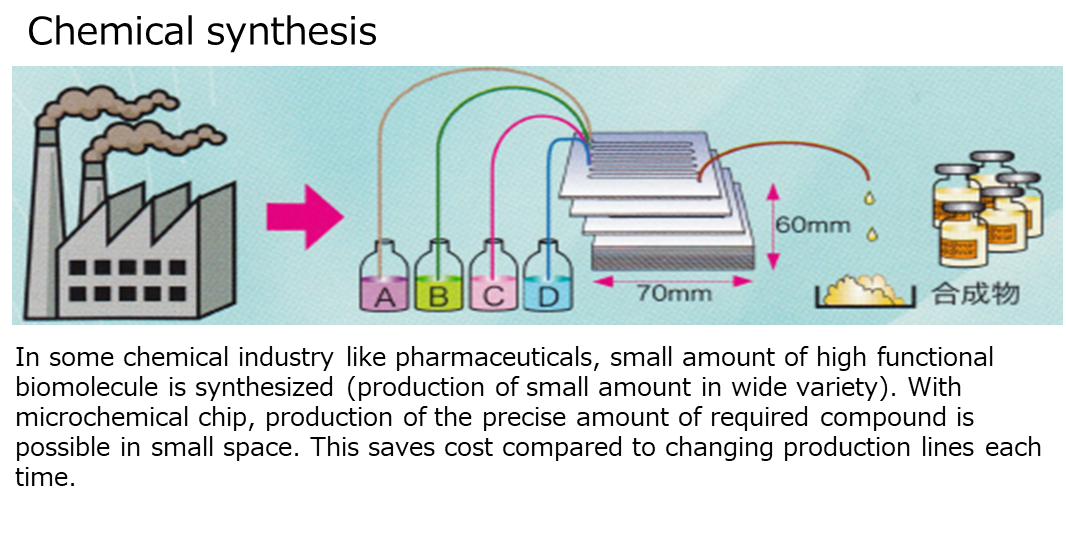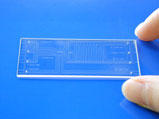In recent years, micronization and integration of chemical system are rapidly achieving attention. The advantages of this technology are to reduce measurement time significantly with high efficiency as well as to reduce amount of reagents and waste fluid. Chemical processes are integrated into and micro-miniaturized on a glass chip, like semiconductor integrated circuit. Integrated glass chip holds channels at 10s to 100s microns. The microspace inside the channel drives chemical processes easily such as mixing, reaction, separation and detection. As this technology requires only a limited space, it’s possible to carry this chemical system everywhere you like. It is this portability that enables to perform “On-demand, On-site chemical process”.

Characteristics of liquid phase in miniature space:
-
Narrow space: Reaction time reduces since distances of molecular diffusion (movement) is shortened. Reaction time (analytic time) is greatly shortened by providing narrower spaces because diffusion time (reaction time) is proportionate to the square of diffusion distance.
-
Large interface: Surface area of flow channel against the volume of reagent, or the proportion of liquid-liquid interface is large.
When 2 different kinds of liquid are put into a microchannel to form an interface, the size of interface is same as that in a mechanical diffusion. -
Small calorific capacity: Rapid heating and cooling is possible thanks to small calorific capacity.
When experimental systems are micronized to enjoy these advantages, they will improve their efficiency. In addition, it has possibilities to be a revolution for chemical technology in chemical plants.

Size effect: cm→100 μm
Size: 1/100
Time for molecular diffusion (reaction time of diffusion controlled reaction, time of molecular transportation): 1/10,000
Volume (Necessary space, reagents and waste for experiment): 1/1,000,000
















